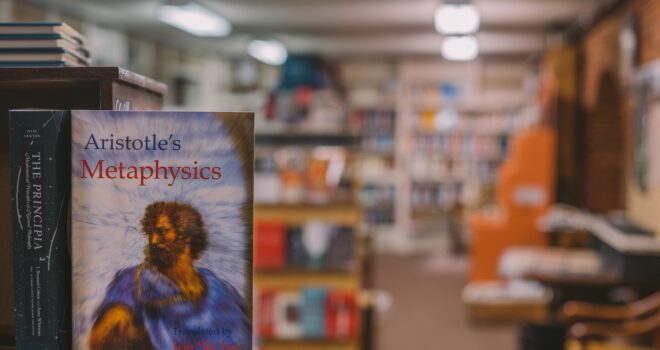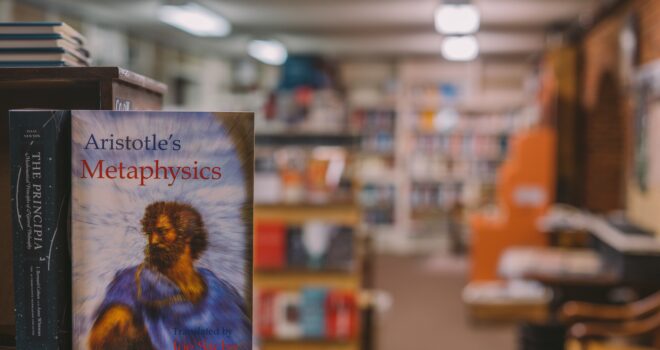Editor’s note: This article is part one of a five-part series, Truth in Modern Times.
Truth in the Modern World
Truth has always been an important and inspiring idea, a difficult and dogmatic question, a contentious and provocative assertion. For the very idea of truth, by its inherent nature, is a bold claim about reality. About how things are. About the way things could or should be. And, when it comes to such truth claims, there is never a short supply.
For every opinion is an implicit truth claim. A claim about the very nature of reality. About the way life really is. For all opinions are really just implicit claims or beliefs about the nature of reality, tangible and physical reality or moral and ethical reality, philosophical and political reality or aesthetic and theological reality.
Just think about the sheer number of conflicting opinions about the truths of reality we encounter in our daily lives or in the news each day. Or, think about opinions and how everyone has one. Think about the number and nature of opinions and the explicit and implicit truth claims embedded in them. For even in our modern moment, there is a seemingly limitless number of conflicting truth claims we encounter or engage, we deny or dismiss.
Clearly, there is no shortage of opinions about reality and truth, even in our modern age of scientific sophistication and technological wizardry. And, every opinion, to some degree, is a truth claim, an assertion about the nature of reality, particularly when it comes to life’s big questions. Philosophical and religious questions. Political and cultural questions. Moral and legal questions. Even, questions of aesthetics and the arts.
Just take a moment to survey the numerous disagreements and debates documented in the headlines of our many media outlets or the conflicts that litter our more immediate and intimate relationships, even with the people we love. It is truly startling how many conflicts arise from truth claims and how intense they are, at times.
But, in our modern times, it is truly odd how we reflexively understand such disagreements and debates. And, how we resolve them or adapt to them. For nowadays, the resolutions to our most crucial clashes about reality and truth are not resolved by evidence and rational argument. Now these inherently conflictual assertions about reality and truth are resolved by our uncritical acceptance of the very idea of the legitimacy of each person’s personal perception and the veracity of each person’s beliefs and truth claims.
Now, the reflex resolution of competitive truth claims is acceptance or tolerance. Acceptance of any and all differences. Why? Because, to the modern mind, there is no sound way to prove the veracity of any claim of truth, with the possible exception of the sciences. This path of tolerant acceptance implicitly results in the truth that there is no truth. For in our modern era there is no real, reasonable or rational way of proving the truth of anything outside the boundaries of science and empirical experimentation.
And, that is the solitary and singular certainty about truth in the modern world. Now, the common cultural truth is that “the truth of anything is really found in the eye of the beholder.” Now, truth is really just a matter of personal perception. Truth is nothing more than a matter of personal opinion and perception, outside of the sciences.
Now truth is not a function of evidence. It is a function of personal or shared perception. And, this idea of personal truth is known as “relativism,” the truth that truth is and can only be perceptual, a product of each individual’s preference and belief.
That is why something can be true for you, but not for me, as so many are inclined to say in our modern time. And, that ubiquitous universal standard is the real problem we have with the idea of truth and with any and every truth claim beyond the boundaries of science. For that very perception about the nature of truth, as a matter of personal perception and preference, is often at the core of our clashes and the foundational first fact about truth that this article series will confront.
For virtually all our modern clashes about truth’s nature and our many provocative and divisive topics and truth claims, all arise inevitably from the idea that outside of verified scientific truth, truth is simply and universally a matter of personal perception or cultural commonality. A matter of historical artifact or cultural precedent or momentum. A manifestation of power, control and manipulation by those in positions of influence and authority.
But, is this common cultural given about truth really true? Actually and factually true? Or, is it an erroneous and catastrophic conclusion about knowing and knowledge? Is it a mistake about our human capacities for knowing things scientifically and rationally? Well, it is. And, it is time to look closely at this idea of personal truth under the clear eye of reason and rational scrutiny. So, buckle up.
For the simple profundity of thinking about thinking, about meta-cognition, can be a bit challenging, at first. Yet, it is a pursuit whose initial difficulties are truly ephemeral, once the essence of our modern errors is revealed and understood. For the simple profundities that emerge and arise from looking at knowing and how we know anything is truly the keystone to solving the scarcity of truth in our modern world.
For this thinking about thinking, this meta-cognition, will resurrect the reality of truth and the sheer number and scope of truths there are inherent to life and practical living. Truths whose depth and breadth will startle our modern minds and challenge many of our unexamined assumptions about how we know, what we know and the degree and surety with which we can know the truth about life and the truths for living.
For once the problem of knowing is solved by rediscovering the truth of reason and logic, of
evidence and rational proof, the pathway to truth is possible, probable and predictable. And, it begins with science and mathematics and their rational grounding. For a close look at science and mathematics reveals the truth about knowing and the truth about why we think we can’t know the truth about anything, except for science and mathematics.
And, that is what we will explore in the ensuing articles in this five-part series. So, stick around. For as you confront and comprehend this question about knowing, you will see with startling certainty the misperceptions and errors of our modern world regarding reason and science. And, you will understand the profundities and practical truths that logic and reason provide to all of us, if we use them properly and rigorously and regularly.












